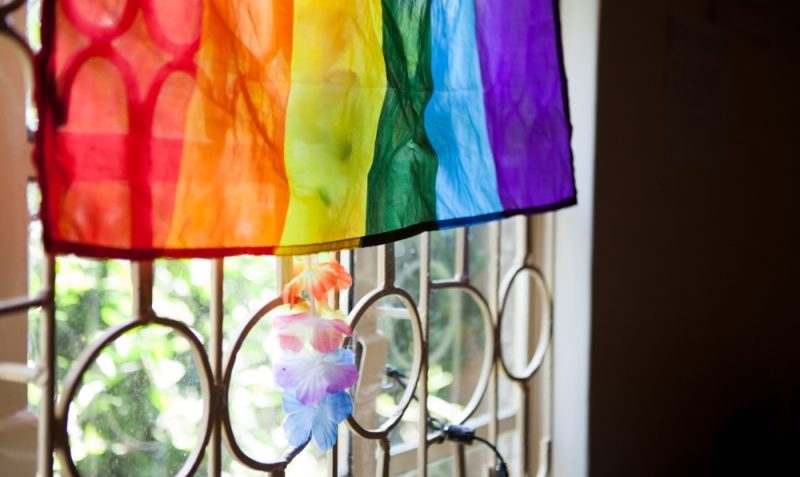‘A victory of law and love’: India decriminalises homosexuality
 © Corrie Wingate
© Corrie Wingate
A landmark ruling announced today by India’s Supreme Court has decriminalised homosexuality between consenting adults.
A landmark ruling announced today by India’s Supreme Court has decriminalised homosexuality between consenting adults.
The ruling overturned Section 377, a British pre-colonial era law that banned “carnal intercourse against the order of nature” and carried a maximum jail sentence of 10 years.
“Today’s Supreme Court decision marks a significant moment in the lives of millions of people across India who have been criminalised and marginalised by these discriminatory laws,” said Christine Stegling, executive director of the International HIV/AIDS Alliance.
“Far too often, such laws drive LGBT people away from crucial services, such as HIV prevention and testing, and have a devastating impact on individuals’ health. Today is a victory for the thousands of activists whose tireless work will have a positive impact on the lives and health of India’s LGBT community.”
A new pathway for LGBT people
The decision overturns a ruling made by the Supreme Court in 2013 that reinstated Section 377, having previously suspended it in 2009 – a major setback that left LGBT people increasingly vulnerable to discrimination, violence, and harassment.
“Today is a victory of law and love,” said Sonal Mehta, chief executive of Alliance India, which campaigned to bring about today’s ruling. “I am happy that India has truly become secular today and embraced diversity in the true sense. We will celebrate today with dance and music with about 70 gay and transgender people in our office. From next year, 6th September will be our day of celebrating solidarity with the LGBT community.”
Associate Director of Sexuality, Gender and Rights at Alliance India Abhina Aher welcomed today’s “rainbow victory”, adding: “Section 377 was one of our country’s most punitive laws. It dragged the HIV epidemic underground, and contributed to stigma and discrimination in health care and the provision of HIV services to sexual minorities. The law also contributed to gender-based violence and sexuality-based violence, which are major structural barriers faced by men who have sex with men and transgender people when seeking HIV services.
“Today we no longer have Section 377, instead we have the freedom of the queer movement and a new pathway for LGBT people to seek their rights, protect their dignity and access healthcare.
“We are thankful to India’s Supreme Court but we must not forget the sacrifices of millions of LGBTI leaders who fought shoulder-to-shoulder over the years and made this dream come true. We are queer and we are free. Today, India celebrates ‘Queer Freedom Day’.”
Read more about the Alliance’s work in India here.
This article was written as the International HIV/AIDS Alliance, before we changed our name to Frontline AIDS.
Tags
Alliance IndiaIndiaLGBT


